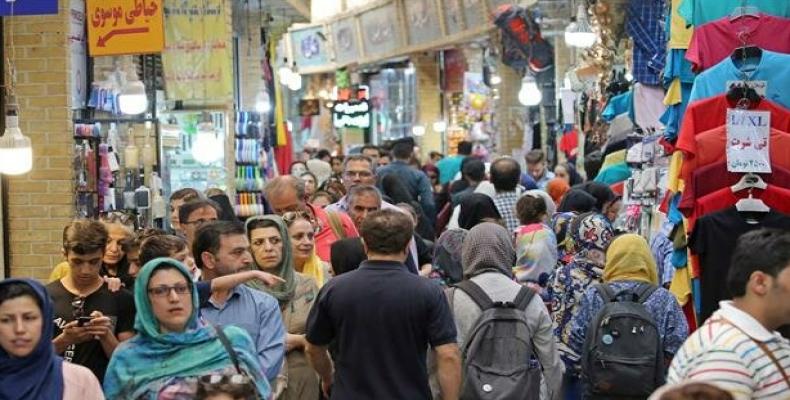Tehran, October 9 (RHC)-- Iranian Foreign Minister Mohammad Javad Zarif says the U.S. sanctions that target the Central Bank of Iran (CBI) are nothing short of "war crimes," because the impact from these measures is primarily focused on the people of Iran.
During an address at the International Conference on Global Economy & Sanctions in Tehran on Wednesday, Zarif said that under international law, the central bank of any country should be the most immune entity against sanctions.
Zarif noted that sanctioning the Central Bank, which is a government institution, under the label of terrorism, will definitely affect the body's ability to import basic food supplies and medications to meet domestic demand.
"These actions by America amount to war crimes because they are aimed at ordinary civilians as their primary and main target," he said. "Civilians are considered secondary targets in a military war but they are primary targets under such policy of economic terrorism."
Last month, U.S. President Donald Trump stepped up his campaign of "maximum pressure" against Iran by subjecting the CBI to sanctions. He described them as the highest sanctions Washington had ever imposed on any country.
Tehran said back then that the move showed America's frustration in the face of its failure to pressure Iran into accepting its demands. "The pressure is constantly increasing even as the country's ability to respond is growing," he said. "The solution to counter this maximum pressure is to put up maximum resistance, which is best displayed by our trust in our own abilities."
Trump launched his pressure campaign after abandoning the 2015 Iran nuclear deal in May last year. He said back then that he would force Iran into renegotiating a new agreement that would curb Iran's nuclear energy and ballistic missile programs while also rolling back its regional influence.
Besides reimposing sanctions that had been removed under the nuclear deal, the Trump administration proceeded to introduce new bans that prohibited selling a wide range of vital goods to Iran, including passenger airplane parts and much-needed pharmaceuticals.
Tehran has kicked into gear a measured response to the lack of action on part of the remaining signatories to the JCPOA -- the UK, France, China, Russia and Germany -- to save the deal in the face of increasing U.S. pressure.
Tehran has so far cut back on its commitments under the deal in three stages, most notably increasing uranium enrichment to purity levels beyond the 3.67 percent and stockpiling enriched uranium to amounts more than the 300kg cap set in the agreement.


